The sad truth is that just because someone is your parent doesn’t automatically mean that they have your best interests at heart. Whether or not to forgive someone who’s responsible for the deepest, most painful traumas in your past is a very personal and tough decision. Does everyone deserve a second chance? There are no easy answers…
Redditor u/Sensitive-History9 turned to the internet for advice regarding an extremely sensitive situation. She shared how her estranged parents wanted to reconcile with her after 24 years of no contact. However, she is set against this because they tricked her into giving up her baby for adoption when she was a teenager. Scroll down for the full story, as well as to read the heartfelt advice the net gave the woman.
Bored Panda reached out to the author, and we’ll update the article as soon as we hear back from her.
A woman turned to the internet for some impartial advice after her parents, who she cut off for 24 years, wanted to reconcile with her

Image credits: Nastyaofly / Envato (not the actual photo)
The author shared how her parents had completely eroded her trust in them after they tricked her into giving up her firstborn
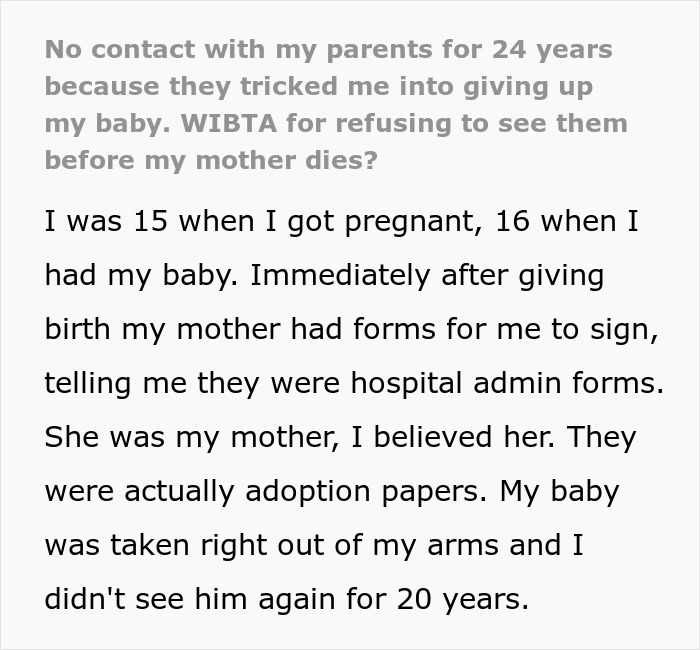
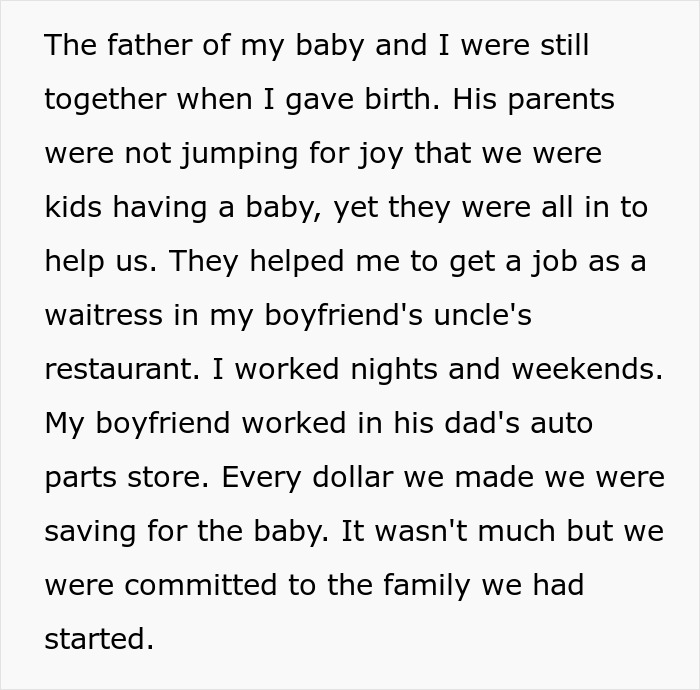
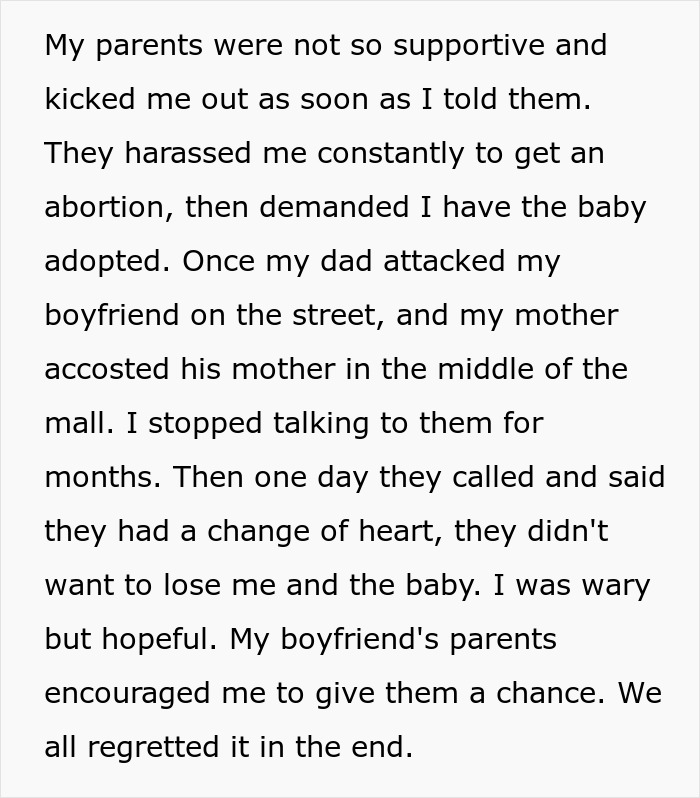
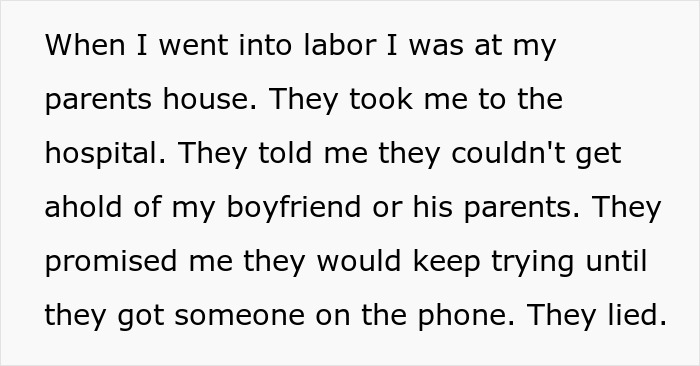

Image credits: gpointstudio / Envato (not the actual photo)
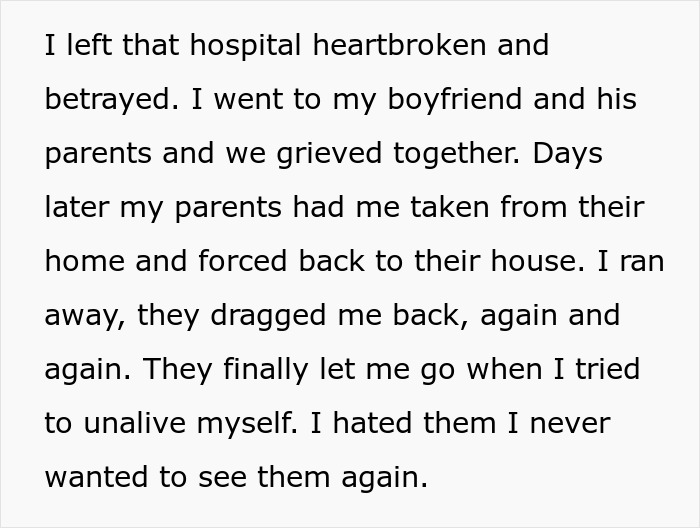
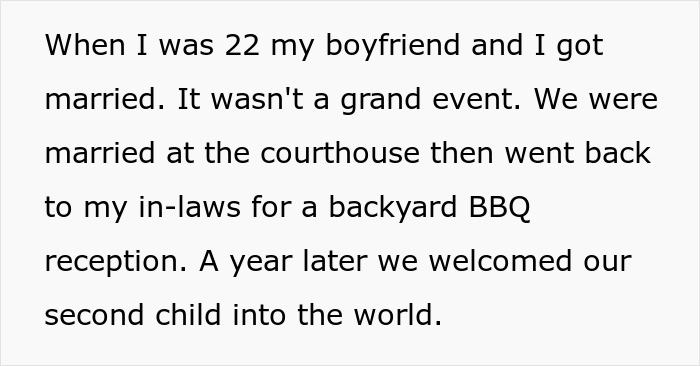


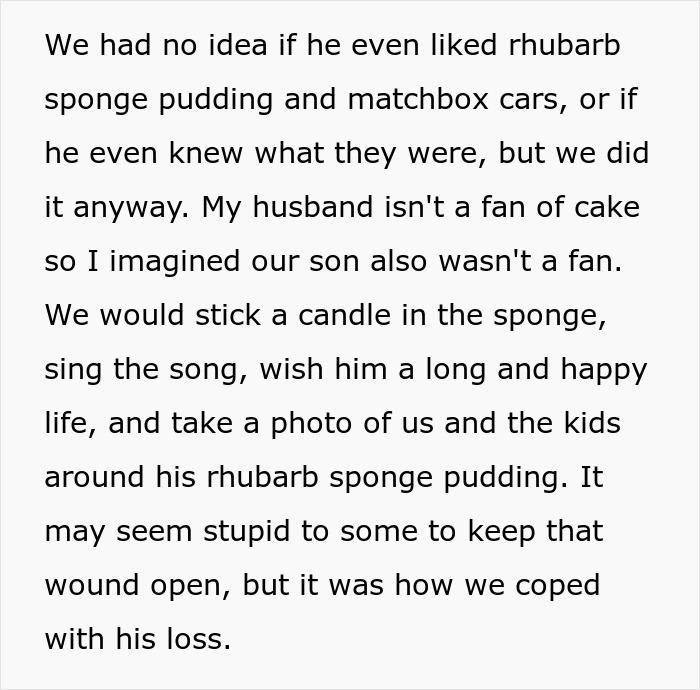
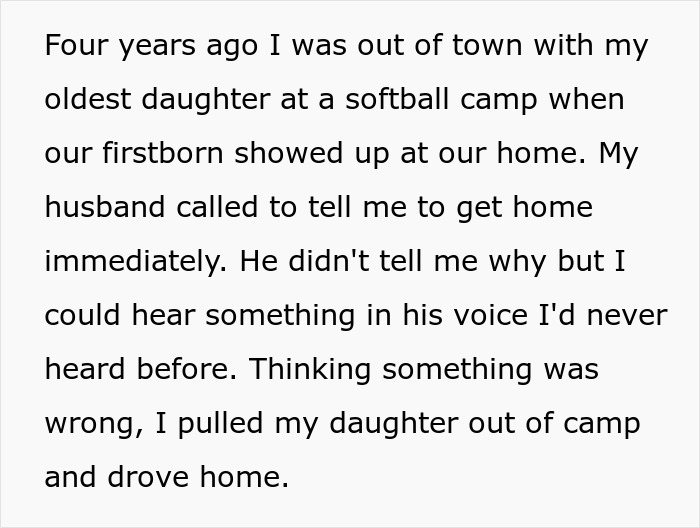

Image credits: Satura_ / Envato (not the actual photo)

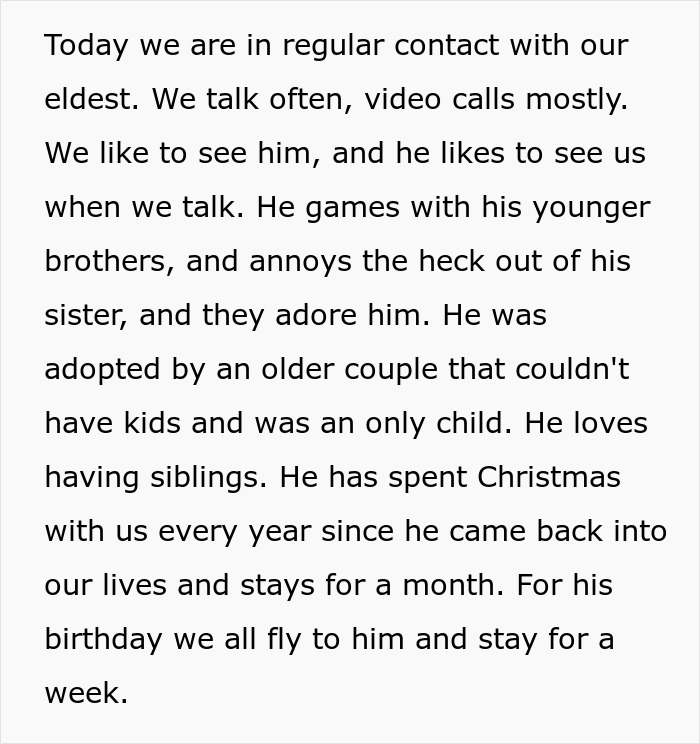
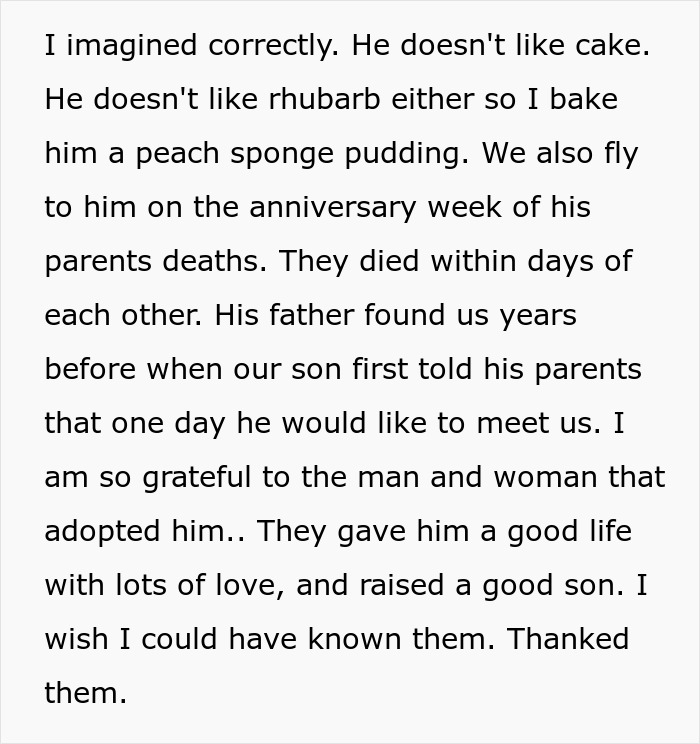
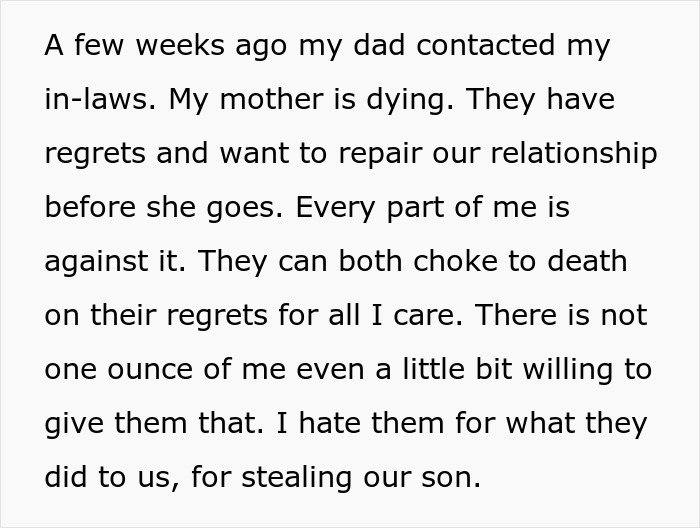
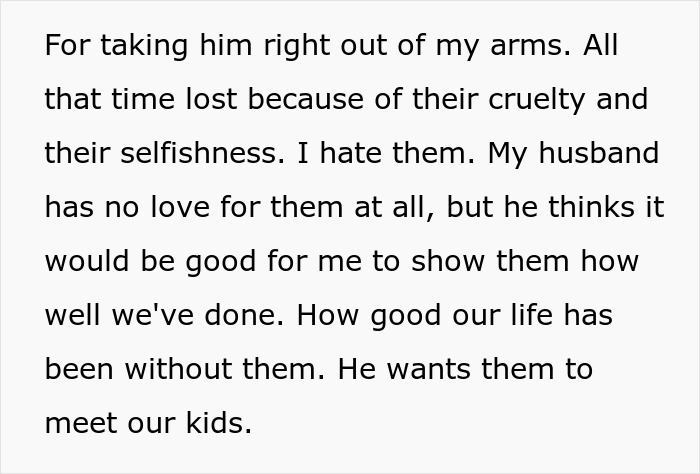


Image credits: LightFieldStudios / Envato (not the actual photo)
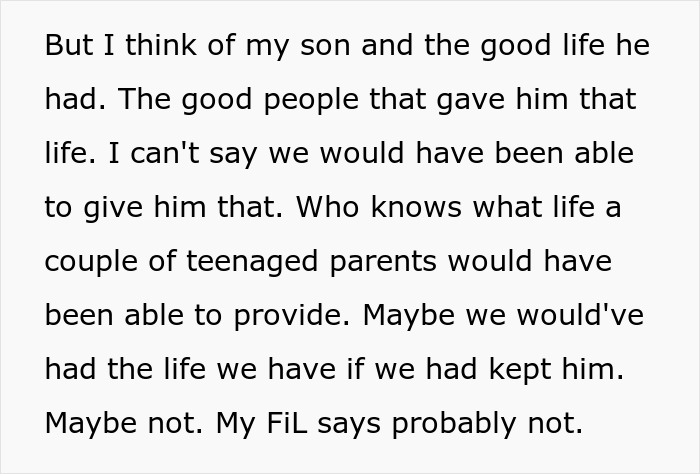
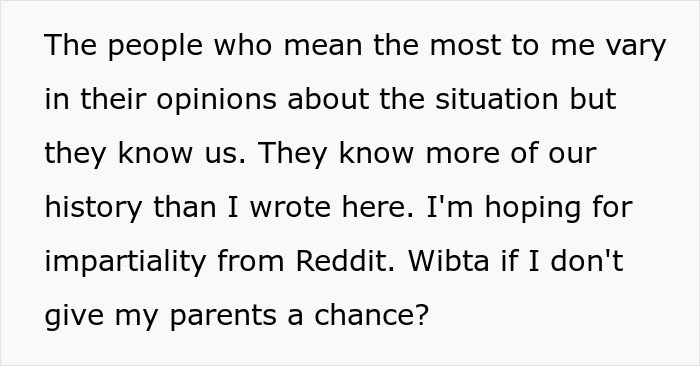
Image credits: Sensitive-History9
Estrangement happens far more often than many people think
More relatives are estranged from one another than you might think. Time magazine reports that a recent study published in the Journal of Marriage and Family found that just over a quarter (26%) of young adults reported being estranged from their dads. Meanwhile, 6% of the respondents said that they were estranged from their moms.
According to Cornell University professor Karl Pillemer, an expert in human development and the author of Fault Lines, just under 10% of people reported being estranged either from a parent or a child. Slightly more than 10% said they’re estranged from a sibling.
Pillemer explains that there are three main ways that family members become estranged. The first is childhood adversity. The second is a difference in values. The third and final one is a cascade of negative interaction. The latter is often sparked either when someone the group doesn’t approve of marries into the family or when there’s an inheritance to fight over.
“It’s hard to say which of those is most important. But I will say that childhood problems—people with very difficult, troubled childhoods—seem to be less likely to reconcile over time,” the professor said.
According to Pillemer, one method of reconciliation is when a person gives their relatives clear and provisional ways to get back into a relationship with them. One example of this would be saying something along the lines of: “I’m willing to let you see your grandchildren and join us every two months, but you may never criticize my husband and you can’t criticize my child-rearing.”
The professor noted that this sort of ultimatum often shocks the other person, making them more likely to change their behavior for the better.
There are no easy answers when the situations are so emotionally complex

Image credits: MART PRODUCTION / Pexels (not the actual photo)
The situation the author described in her online post is incredibly emotionally charged. No matter what she decides to do, someone might end up hurt. That’s why she turned to the internet for some impartial advice.
Her powerful story made a huge splash on the internet. The members of the r/AITA_WIBTA_PUBLIC online community, where she shared her tale, rushed to share their support, as well as to voice their thoughts on what she should consider doing.
At the time of writing, her story had gotten 18k upvotes and received 5.4 upvotes. Ten readers were also so touched by the author’s experience and dilemma that they gave her an award to show their appreciation.
It’s really important for everyone to understand that forgiveness—true forgiveness—and reconciliation are incredibly personal decisions. There are no ‘wrong’ decisions here because everything depends on the individual.
There is no requirement or duty to forgive someone who has hurt you. There is no set timeline for forgiveness. You can’t force someone to heal and ‘move on’ from their traumas quickly. And if anyone tries to pressure you to forgive decades worth of pain, well, they might be more concerned with themselves than you.
Of course, things aren’t so easy when an estranged relative of yours is on the verge of passing away. This puts a rush on decisions that would otherwise take lots of time to make. And if there was no rush, the reconciliation could be stretched out over many years, each side taking tiny steps.
Real forgiveness takes a lot of time and effort. It doesn’t happen overnight

Image credits: Ketut Subiyanto / Pexels (not the actual photo)
Now, the author has a binary choice: either choose to forgive her parents or continue not contacting them, as she did for 24 years. It could be argued that parents who trick their daughter into giving up her firstborn and did not support her in any shape or form aren’t real parents at all.
The best revenge is a life well-lived. And real forgiveness won’t automatically happen just because someone asks for it. It takes dedicated effort to make amends. The greater the hurt, the longer it’ll take. Whatever the author decides to do, she has to live with the consequences of that decision.
In these sorts of situations, it’s best not to make any rash decisions. Sleep on it. Talk to the people you trust most to get their perspective. Heck, even asking the internet for advice can help you look at everything from a different angle you might not even have considered.
Usually, it helps to listen to your gut feeling. Your instincts are most often right, even if sometimes it’s difficult to interpret them correctly.
What would you do if you were in the author’s shoes, dear Pandas? What advice would you give her? Do you think she should continue cutting her parents out of her life? Or should she try to reconcile with them after so many years? If you have a moment, share your thoughts about this sensitive family situation in the comments.
Most internet users were extremely supportive of the woman. Here’s the advice they gave her

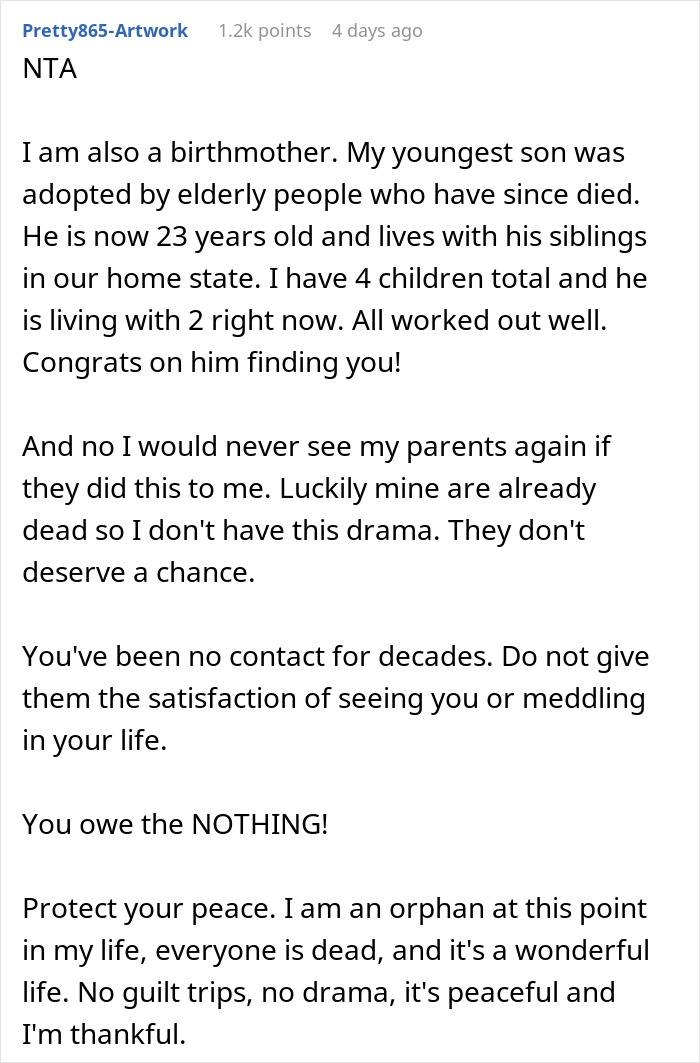

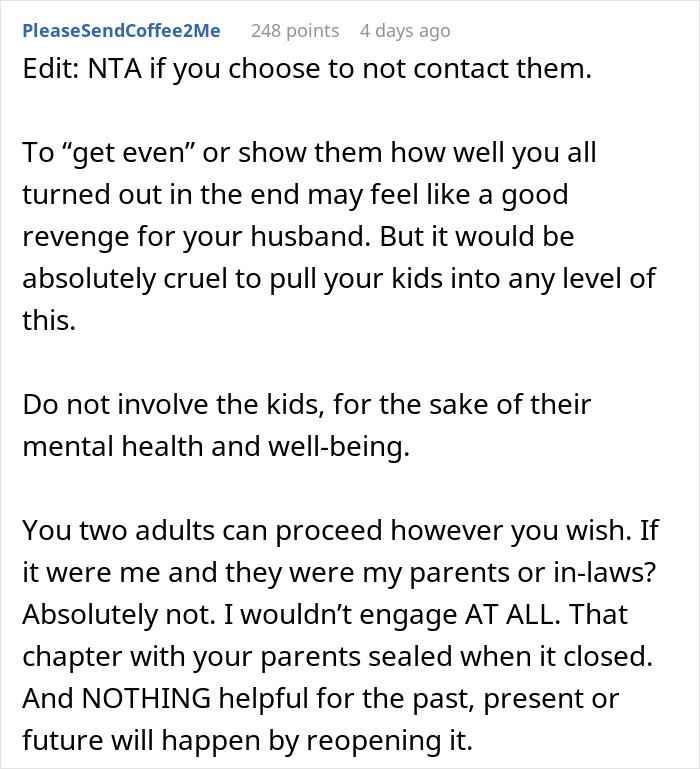
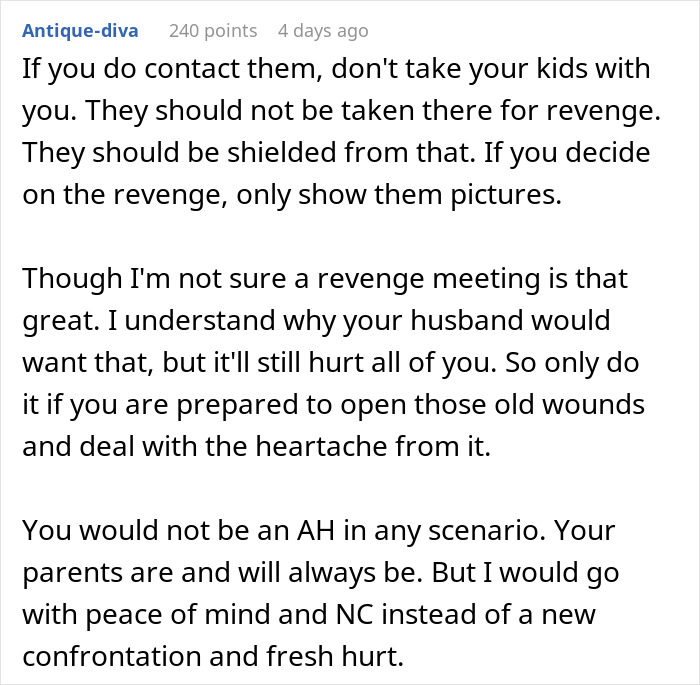


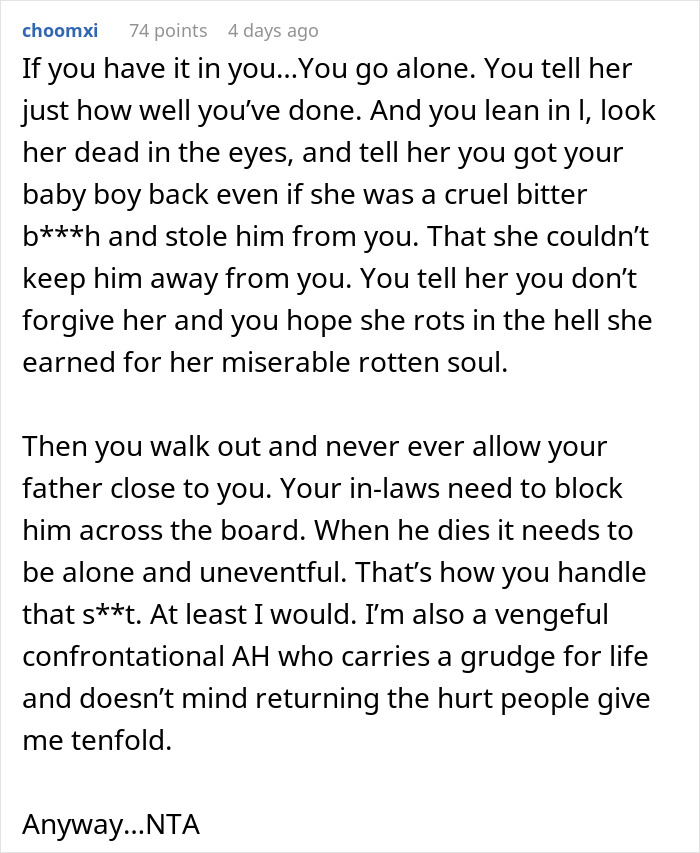
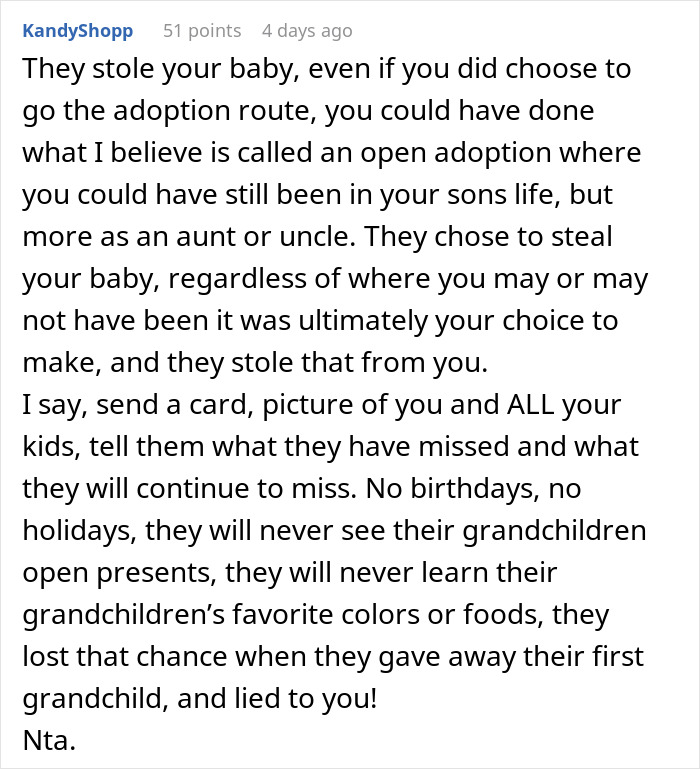






Some readers were very harsh and saw the situation differently










